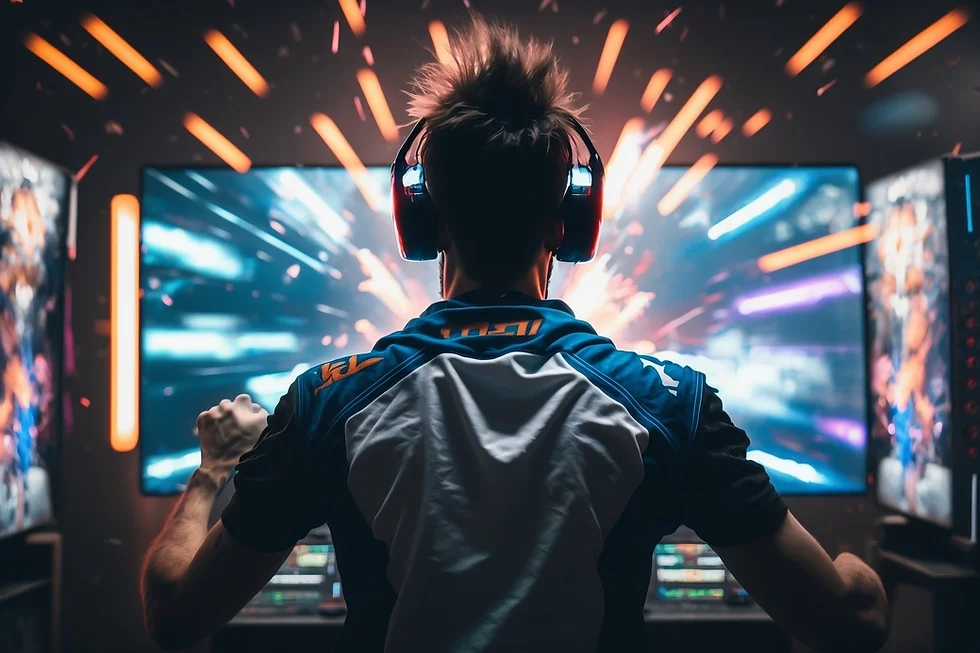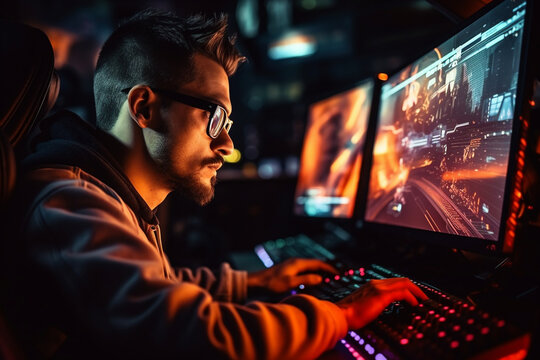
Improving your gaming skills is a journey that requires time, dedication, and most importantly, patience. Whether you’re learning new strategies, honing your reflexes, or mastering a specific game mechanic, patience is a crucial factor in achieving long-term success. In a world where instant gratification is often prioritized, it’s easy to get frustrated when progress seems slow. However, embracing patience can make all the difference in your development as a gamer.
Why Patience Matters in Gaming
Patience is an essential quality for anyone looking to improve their gaming performance for several reasons:
- Long-Term Growth: Gaming mastery doesn’t happen overnight. It takes consistent practice and a steady approach to build skills and knowledge, which requires patience.
- Learning from Mistakes: Mistakes are a natural part of the learning process. Being patient allows you to view failures as learning opportunities rather than setbacks.
- Building Mental Toughness: Gaming, especially in competitive environments, can be stressful. Patience helps you remain calm and focused, even during difficult moments, which is essential for sustained success.
Understanding That Progress Takes Time
It’s important to remember that becoming a skilled gamer is a gradual process. Each step forward may seem small, but over time, these incremental improvements will add up.
- Skill Development: Whether you’re improving your aim in a shooter game, learning new combos in a fighting game, or enhancing your strategic decision-making, each of these skills requires repetitive practice. Mastery comes through repetition and refinement, which takes time and patience.
- Leveling Up in Competitive Games: In competitive gaming, such as multiplayer online games, improving your ranking often involves a series of wins and losses. Progress isn’t always linear, and patience helps you push through the plateaus and setbacks without giving up.
- Personal Growth: Gaming improvement is also about growing as a person. It involves learning to stay calm under pressure, improve your focus, and deal with frustration. This personal growth also takes time and patience to cultivate.
Learning to Manage Frustration
Frustration is inevitable when trying to improve at anything, including gaming. However, how you manage that frustration plays a key role in your progress.
- Avoiding Burnout: Repeated failure can make you feel as though you’re not improving, but the key is to avoid letting frustration lead to burnout. Take regular breaks to refresh your mind and body, allowing you to return to the game with a clear perspective.
- Keeping Emotions in Check: Losing your temper or letting emotions take over can cloud your judgment and hinder your performance. Practicing patience helps you maintain control over your emotions, allowing you to stay focused on improving rather than getting bogged down by frustration.
- Setting Realistic Expectations: Understand that improvement won’t always be immediate. Setting small, achievable goals can help keep frustration in check, as you will have clear markers of progress, even if they’re subtle.
The Role of Patience in Consistent Practice
Patience goes hand in hand with consistent practice, which is one of the most effective ways to improve your gaming skills.
- Practice Makes Perfect: Developing muscle memory, learning game mechanics, and mastering tactics require hours of practice. The more consistent and patient you are with your practice, the faster you’ll improve.
- Gradual Learning: Gaming involves a learning curve. At first, certain mechanics or strategies might seem difficult, but with enough practice, they will start to feel more natural. Patience helps you stick with it long enough to experience this transition.
- Embracing the Grind: The most successful gamers don’t shy away from the grind. They understand that putting in the time and effort consistently will eventually pay off. Patience during the grind ensures that you stay on course and continue to improve, even when it feels like progress is slow.
Patience in Strategic Thinking and Decision-Making
In many games, especially strategy games, patience is essential for making the best decisions.
- Thinking Before Acting: Quick reflexes are important in certain game types, but strategic thinking often requires careful consideration. Patience allows you to take a step back and assess the situation before making decisions that could impact your success.
- Long-Term Planning: In games that require long-term strategy, such as turn-based games or real-time strategy (RTS) games, patience helps you stick to your plans rather than rushing into short-term decisions that may ultimately hurt your position.
- Adaptability: Patience helps you adapt to different playstyles, tactics, and strategies. Instead of jumping to conclusions or forcing a strategy that’s not working, you take the time to reevaluate your approach and adjust accordingly.
Improving Your Patience Through Mindfulness
Gaming, especially when competitive, can be mentally and emotionally taxing. Practicing mindfulness can be an effective way to build patience and improve your overall gaming experience.
- Focused Attention: Mindfulness exercises can help you improve your ability to focus on the present moment, which is critical in gaming. By concentrating fully on the task at hand, you can avoid distractions and reduce the urge to rush.
- Stress Management: Gaming can be stressful, but learning to stay mindful in the heat of the moment can help you manage that stress. Deep breathing, meditation, and taking breaks are all methods that help you remain calm and patient during intense gaming sessions.
- Positive Thinking: Patience and positive thinking go hand in hand. Instead of focusing on past mistakes, approach each gaming session with the mindset that you’re learning and improving, even if it’s not immediately obvious.
Conclusion
Patience is not just a virtue—it’s a powerful tool for success in gaming. It enables you to embrace the process of improvement, learn from mistakes, manage frustration, and make better decisions. By practicing patience, you can improve your gaming skills more effectively and enjoy the journey, rather than focusing solely on the destination. Whether you’re a beginner or an experienced gamer, remember that true mastery comes with time and consistent effort.

